So a company has n available projects and k employees on the bench. Each project has a "number of hours" associated with it. Each employee has an hourly rate that the parent company gets paid gets paid if he is on a project. Not all employees can be assigned to any project i.e. each employee has a subset of the n projects he can work on. I want to assign the employees to projects so that I can maximize what the company makes from the assignment. Each project can be assigned to only one employee and each employee can work on only one project.
I am thinking of using dynamic programming but am unable to reach a recursion which I can use to fill a table. I for a m x n matrix, where m is the projects and n are the employees. Matrix[i][j]= the amount earned by the company if project i is assigned to employee j. I am stuck on how to maximize this.
Any help will be appreciated!
